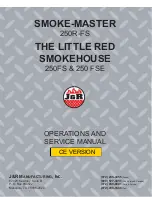
7
GB
Important !
1. Never turn the hot plate on before placing a dish on it, except when first used;
2. If the hot plate is not to be used for a long time, apply a little grease to its
painted surface.
3. Do not allow spills to be burnt onto the hot plate since baked stains are very
difficult to remove.
Cooking
Set the selector knob to position 6 until the dish
gets boiled, continue further cooking with the
knob in position 2; if necessary, set it to position
below or above.
Roasting
Set the selector knob to position 6 and warm the
fat. Then place the dish in the pan and turn the
knob to position 4. If necessary, select higher or
lower power setting.
3.2 COOKWARE SELECTION
•
Cookware should have a thick, flat and dry bottom of the diameter equal or slightly
bigger than the hot plate. If cookware diameter is smaller than the hot plate, big
amounts of heat will be lost.
•
The uneven bases of the cookware make the cooking time last longer and cause
higher consumption of energy.
•
Cookware made of flameproof glass, suitable for cooking on the hot plate, should
match the hot plate size. The pans projecting beyond the hot plate may be broken
due to temperature stresses. The heated pan must never be filled up with cold water
or taken away onto the cold metal or stone surfaces.
•
The pan should be covered with a lid, which prevents the kitchen room from the
accumulation of excessive amounts of vapour.
Pan too small ! Uneven pan bottom ! Lid not properly placed !
Fig. 5
Correct !
•
Low current consumption
•
Good heat transfer
- even pans
- pan and plate diameters are equal
- pan covered with lid
Wrong !
•
High current consumption
•
Poor heat transfer
•
Long cooking time
THE HOB
Fig. 4










































